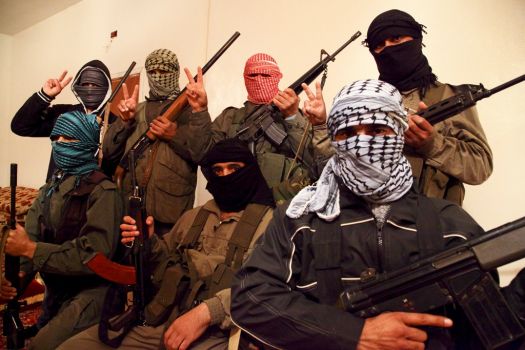
From Idean Salehyan, Duck of Minerva: Reports have emerged that Turkey is supporting a group of military defectors from Syria, which have organized under the name, the ‘Free Syrian Army’ or FSA. Led by Riyad al-Asad, a former Colonel in Bashar Assad’s army , this group claims to have inflicted a series of impressive attacks against regime forces. Although the extent of Turkish involvement is still unclear, providing sanctuary to the FSA is seen by many as an attractive way to tighten the screws on an increasingly brutal and unpopular regime. . . .
Diplomatic pressure and sanctions on Damascus do not appear to be working, as Assad’s ruthless suppression of peaceful demonstrators continues. However, supporting an armed opposition group would open a new—and potentially disastrous—phase in the uprising. The United States and Turkey must carefully consider what such a step may mean for the Syrian opposition and for the region as a whole. . . .
[A]s unpopular as the Syrian regime is, the strategic decision to relocate to Turkey reveals the Free Syrian Army’s relative weakness. Rebels in Libya were able to secure domestic strongholds in the east early on, while they advanced toward the capital city-by-city. By contrast, Syrian dissidents have been unable to find a permanent, domestic base of operations free from government control. With an external sanctuary the FSA is much less likely to be defeated militarily, but this does not necessarily mean a swift rebel victory. Instead, cross-border groups often fight bloody, protracted insurgencies which end in a stalemate. The Afghan/Pakistan conflict nexus offers just one such example. . . .
As the Syrian regime fails to bend under international pressure, debates about the appropriate next-step will continue. All options should be on the table in dealing with Assad’s brutality. If attacks on civilians intensify, the international community has a responsibility to protect innocent civilians with all appropriate means, including armed intervention as a last resort. However, before agreeing to back armed militants, all stakeholders should stop to carefully consider the likelihood of success versus yet another front in the Middle East quagmire.
Idean Salehyan, Associate Professor of Political Science at the University of North Texas and the author of Rebels Without Borders: Transnational Insurgencies in World Politics (Cornell Univ. Press, 2009). (photo: Skyeboat Films) (via Real Clear World)
Image: global%20post%2011%208%2011%20free-syrian-army-2011-11-2.jpg
